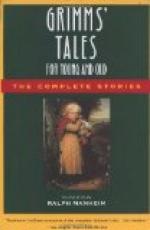This occurrence confirmed the duke’s adherents in their belief of his identity with the victim of the first revolution, and the presence of the rightful heir to the throne of France created some stir in Paris. Perhaps the aspirant to royalty and his friends felt disappointed that the government did not evince its dread by some little persecution, over and above the imprisonment of Widerkeer. To account for this forbearance, dark suspicions were whispered regarding the secret intentions of the ruling powers; and these were not long in being corroborated. One day in November, the duke expressed a desire to imitate certain other royalties by examining the streets of the capital, and mixing with its humble citizens incog. To this end he sallied forth alone, and even condescended to take his dinner at Vefour’s celebrated restaurant. The evening was unusually dark, and while returning to his house across the open space at the back of the Tuileries (La Place de Carousal), he felt his shoulder suddenly grasped by a strong hand, and in another instant a poniard was plunged more than once into his breast, with the words, ’Die, Capet!’ [*] Fortunately, the intended victim wore inside his coat a medal of the Virgin, which had belonged, it was understood, to Marie Antoinette, his mother; this, receiving the point of the dagger, preserved his life, though several flesh wounds were inflicted. The assassin fled; nor did the duke make any alarm for fear of being obliged to appear at the municipal guardhouse, and thus get into the power of the government. When he reached home, he was faint from loss of blood, and kept his bed for a fortnight.
[Footnote: Meurs, Capet!—Capet is the family name of the Bourbons, as Guelph is that of the House of Brunswick.]
The suspicions of foul-play entertained by his ‘court’ were confirmed; they regarded the bravo as an emissary of the government, and the ’Meurs, Capet!’ as an acknowledgment of the duke’s right to the crown! There were, however, ill-natured people who went about hinting that, as the victim was quite alone, and became the teller of his own story, the diabolical deed might have been done by himself, to strengthen the faith of his followers. Nor were these sceptics silenced when the gashes in the coat, the dents in the medal, and the blood of the royal sufferer was pointed out. But upon the whole, whether true or false, the circumstance materially strengthened the duke’s position; and, on recovery, he began to play the prince in earnest.




